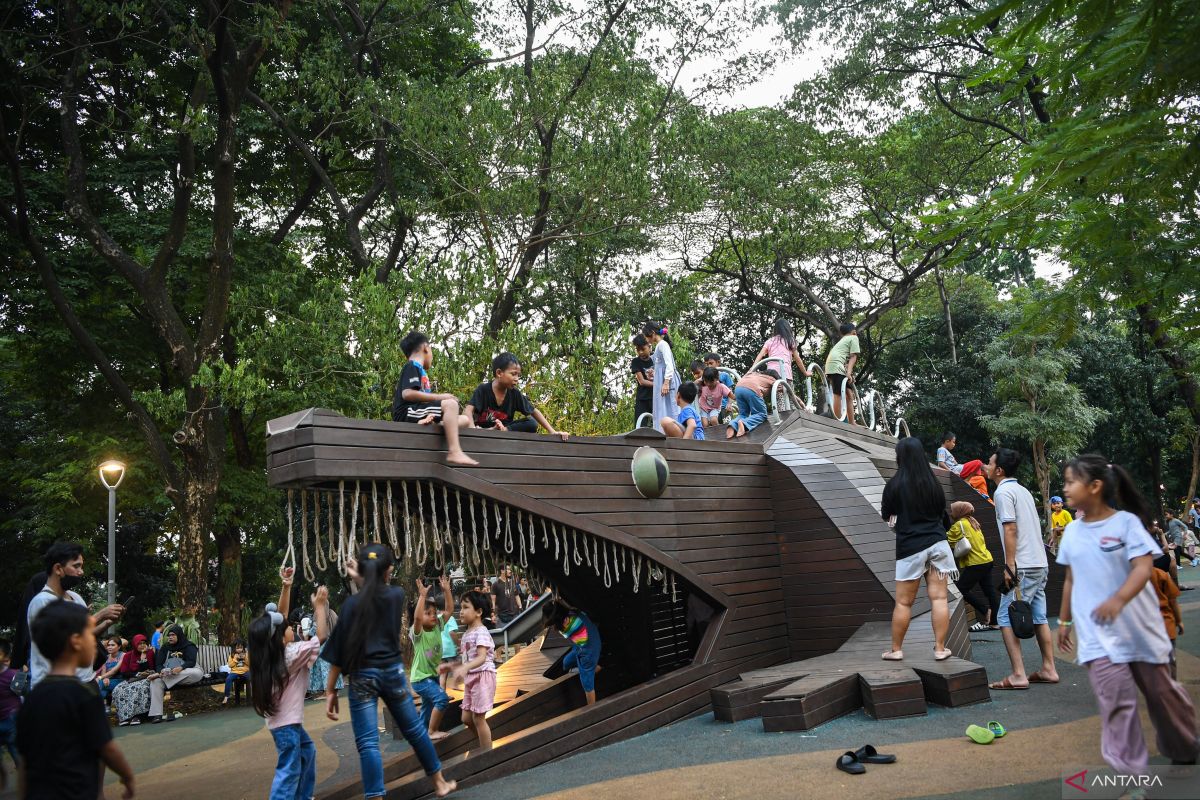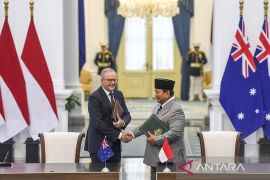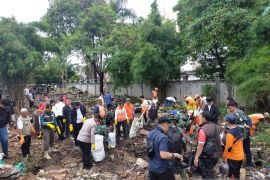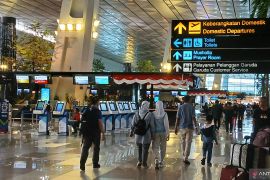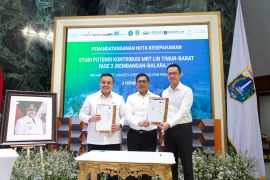In this bustling metropolis, trees are no longer exciting playgrounds for children, but merely decorations along the streets.
Yet nature is not just a place to play. It is a space where curiosity, empathy, and happiness grow among city children.
From soil and fresh air, imagination blooms and the spirit of coexisting with nature takes root. But this spirit seems to fade as Jakarta pursues its image as a global city.
Importance of stimulation
The busy lives of urban families and the growing use of gadgets have caused many city-born children to experience limited stimulation.
Many parents hand over gadgets to their children to manage childcare while attending to other responsibilities.
However, touch, conversation, and exploration of nature are basic needs that technology cannot replace.
Pediatrician Rini Sekartini said stimulation is a fundamental need that parents must fulfill, one of which can be achieved through play.
"Playing is also a basic need of children. Besides being useful for socializing, playing enhances development in motor skills, language, independence, and intelligence," she said.
Playing in nature allows children to hear the sounds of animals, the wind, laughter, and shouts among friends — all of which stimulate speech and sensory growth.
Children's sensory abilities, especially touch, are honed when they play barefoot and freely explore their surroundings.
Government efforts
Although Jakarta is filled with buildings, Governor Pramono Anung is determined to provide more green open spaces for residents, especially children.
One of these efforts is the development of Taman Bendera Pusaka Park, which integrates three parks: Taman Ayodya, Taman Leuser, and Taman Langsat.
To expand access, the provincial government has decided to open several parks around the clock. Some, such as Tebet Eco Park, are open until 10 p.m. local time.
Anung said the 24-hour park policy was inspired by London, where public parks are open anytime. He hopes this will allow residents to exercise or play whenever they wish.
The city also plans to optimize small-scale green spaces within residential areas.
Currently, the number of integrated child-friendly public spaces (RPTRA) remains insufficient due to limited land. As a result, the city will focus on developing medium- to small-sized neighborhood parks.
Even small parks measuring 3,000–5,000 square meters can serve as spaces for play, social interaction, and community gatherings.
To meet growing demand, the city is also converting underpass areas into green spaces. So far, around 300 such locations have been identified.
Among them is Taman Si Pitung Park in Koja Sub-district — Jakarta's second toll-underpass park after the one in Slipi, West Jakarta.
Happy and child-friendly city
Despite its limitations, Jakarta has shown notable progress by ranking 18th among the world's happiest cities, according to the 2025 Time Out survey.
The survey's top 20 cities include Abu Dhabi, Medellín, Cape Town, Mexico City, Mumbai, Beijing, Shanghai, Chicago, Seville, Melbourne, Brighton, Porto, Sydney, Chiang Mai, Marrakech, Dubai, Hanoi, Jakarta, Valencia, and Glasgow.
Jakarta also received the Child-Friendly Province (Provila) award from the Ministry of Women's Empowerment and Child Protection in 2022, 2023, and 2024.
The award recognizes provinces that are fully committed to supporting children's growth, protecting their rights, and building child-friendly environments across cities and districts.
With these achievements, the Jakarta provincial government aims to further enhance livability and inclusivity, turning Jakarta into a global, happy, and child-friendly city.
After all, what could be more delightful than seeing children play in parks filled with shady trees and green grass — learning, socializing, and growing together?
Related news: Jakarta expands green open spaces with ecological, social functions
Related news: Four facilities constructed at Tebet Eco Park to improve comfort
Translator: Lifia, Kenzu
Editor: Anton Santoso
Copyright © ANTARA 2025
